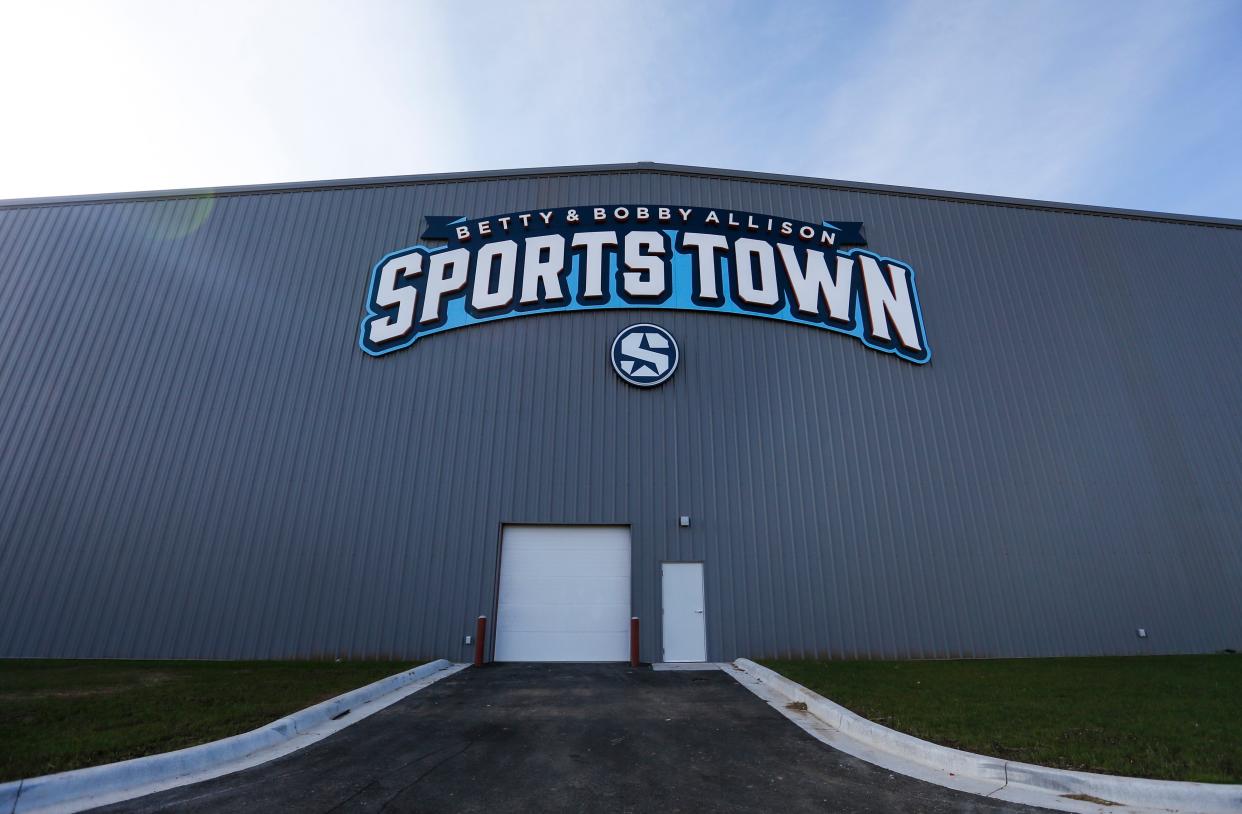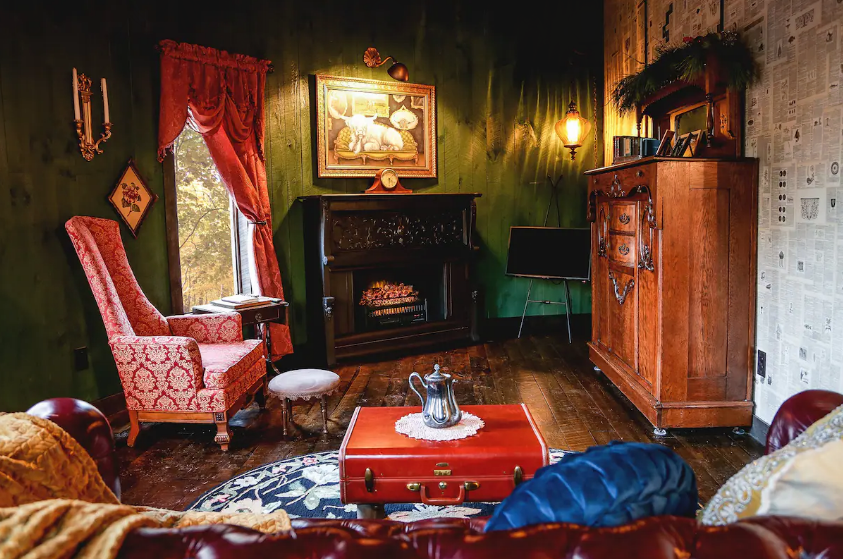Council talks tourism funding, short-term rentals as it sends hotel/motel tax to voters

With a ballot measure consolidating Springfield's hotel/motel tax, City Council hopes to 'level the playing field' between hotels and Airbnb rentals while providing long-term support for the city's tourism industry.
Unanimously approved by City Council at its first meeting of 2023, the question will appear on April's municipal ballot — along with at least two other measures.
The City of Springfield currently levies three layers of a license tax on hotels, motels, and tourist courts. These include a 2% tax from 1979 based on gross receipts, a 2.5% tax from 1998 funding Jordan Valley Park projects and related debt service, and a 0.5% tax from 2004 intended to fund efforts to attract sporting events and conventions and to retain a tourist information center. Totaled, there is a 5% licensing tax.
More than half the current tax is used for "tourism-related activities" through the Springfield Convention & Visitors Bureau, according to city Finance Director David Holtmann. The remaining revenue is used to pay down debt related to Jordan Valley projects included in Springfield's previous twenty-year city plan.
If approved by voters, the proposed ballot measure would repeal the three layers of taxes and replace them with a consolidated licensing tax at the same rate of 5% of gross receipts on hotels. This would ensure the tax remains in effect in perpetuity — some of the existing taxes are set to expire by 2028.
"One half of the 1998 tax is set to expire upon the repayment of our debt with the Jordan Valley projects. We currently estimate that to be around June of 2028," Holtmann said. "And with that, the funding for our Sports Commission and Arts Council would be severely reduced at that point.
According to Holtmann, consolidating the tax and making it permanent would "reaffirm our commitment for promoting recreation, education and tourism."
While the overall percentage of the tax would not differ, the revised distribution would mean a small increase — 2.95 percentage points —in funding for the Sports Commission and Arts Council.
The consolidated tax would also be applied to short-term rentals, which currently do not pay the city's hotel/motel tax. Popularized by online applications like Airbnb, short-term rentals are defined as any short-term rental housing entity that would accommodate fewer than nine bedrooms.
"Demand for the use of short-term rentals has increased rapidly and they do directly compete with our hotels that collect and pay the lodging tax. This would provide a level playing field for the transient guest tax moving into the future," Holtmann said.
Council unanimously approved placing the hotel/motel tax consolidation referendum on April ballot. Here is the language voters will see when they go to the polls:
Shall the City of Springfield, Missouri:
Repeal the existing five percent license tax (which includes a minimum license tax of $5.00 per monthly license) imposed on the business of renting, leasing, or letting living quarters, sleeping accommodations, rooms, or a part thereof, in connection with any hotel, motel or tourist court, of which two and one-half percent will end upon the repayment of debt issued for the Jordan Valley park projects;
And replace it with a five percent license tax, to be effective on July 1, 2023, imposed on the business of renting, leasing, or letting living quarter sleeping accommodations, rooms, or a part thereof, in connection with any hotel, motel, tourist court, or short-term rental, derived from or paid by transient guests for sleeping accommodations, and to be allocated as follows for the benefit of the local economy:
Forty-seven percent of tax proceeds used to promote travel and tourism, Four and one-half percent of tax proceeds used to attract and host sporting events, Four and one-half percent of tax proceeds used to support the art and cultural tourism, and The balance of tax proceeds used to pay debt service for bonds issued under the prior license tax and to fund capital improvements, including by issuing and paying debt service for bonds, to attract travel and tourism?
More:Here are 4 ballot measures the city plans to send to Springfield voters in April
Tax for sports tourism?
Explaining his support for the consolidated tax, Mayor Ken McClure said the "whole purpose of this though is increased tourism."
"It's 'heads in beds' as the industry refers to it — drawing people into Springfield and allowing them to enjoy the amenities that we have and then also hopefully spending a little money while they're here," he said.
Councilman Matt Simpson somewhat cheekily called the proposal a "slam dunk."
"Here we have taxes being paid by people from outside the town who are coming to visit that are then reinvested in our community into facilities, services and programs that make Springfield only a better place to visit but a better place to live," Simpson said.
One resident spoke against placing the proposed ballot measure up for a public vote. Not because of council's desire to consolidate the tax but their priority of promoting tourism.
"I have concerns about how the funds will be allocated and whether they will truly benefit the community. It is currently proposed that the revenue you generate from this bill will be used to support tourism efforts. However, I strongly recommend that the council reconsider this allocation and instead use the funds to address the pressing issue of affordable housing," said Springfield resident Jackson Zwikelmaier, who noted he owns rental properties.
By expanding housing assistance programs with the revenue, Zwikelmaier said the city could "address a pressing need and create a lasting positive impact for the community."
"The high cost of housing is a contributor to homelessness. Individuals and families are unable to afford their rent or mortgage payments. By providing assistance with the down payment on a home, we can help to reduce homelessness and its associated cost to the city."
Councilwoman Monica Horton agreed that the city should have more "skin in the game" in regard to affordable housing and not rely as much on federal dollars. However, she said the hotel/motel tax was not the best place to look for funding because the city's tourism industry already relies on the revenue generated by the tax.
Councilman Abe McGull said he believes increased youth sports in Springfield could impact many of the other issues the city faces.
"The best way to curb crime and to prevent crime is to get young adults or young students involved in sports. And we have made a deliberate effort with our offer monies to increase the number of soccer fields and providing the appropriate artificial turf for those fields …" he said. "We want to showcase to the surrounding communities that Springfield is the place for soccer and youth sports, and this is a great way to do that."

Crackdown on unlicensed short-term rentals
Talk of the ballot item led to a broader discussion of the appropriate role of short-term rentals in Springfield.
Councilman Andy Lear agreed that the consolidated tax was required to "level the playing field" between traditional hotels and short-term rentals that have only become very popular in the past decade and a half.
"Short-term rentals are a viable business that enhances our community but at the same time, they do compete with existing businesses whose guests pay this tax," he said. "This is a necessary step to add those entities to make it a level playing field.
Speaking on behalf of the Convention & Visitor's Bureau, the recently retired Tracy Kimberlin said the CVB has not promoted any short-term rentals because they do not participate in the tax.
"If this passes the voters, we will promote short-term rentals. They are a legitimate and necessary form of accommodations today and they're not going to go away, and we believe that they do have a place," he said at Monday's council meeting.
According to Kimberlin, there are approximately 400 short-term rentals in the Springfield area, which account for at least a thousand hotel rooms. If including short-term rentals that are unlicensed, Kimberlin estimated the city is losing half a million dollars of revenue a year because of short-term rental's exclusion from the hotel/motel tax.
Holtmann promised that "we can and we will" find unlicensed short-term rentals and ensure they are in compliance with city code.
"We are currently working with the state and the county on monitoring the license agreements for short-term rentals. We are getting a better cooperation moving forward. There are also some tools that we can look into expanding compliance on those registering for the licensing tax on short-term rentals," he said.
Councilman Craig Hosmer noted that many Airbnbs and similar short-term rentals remain unregistered and bemoaned the city's mechanisms for enforcement of their ordinances.
"One of the problems that I have with what sometimes our system of enforcing the laws is, if a citizen doesn't complain, we don't do anything, whether it's barriers, landscape things, driving around without license plates. We don't enforce our laws very well," he said.
Hosmer added he fears the city only enforces laws when tax revenue is at stake.
"We've got all kinds of problems in the city. We don't enforce because we're a complaint-driven city and we've been talking about enforcement for a long time. It just seems like we never make a move till we need to get revenue."
City Manager Jason Gage strongly pushed back on that point.
"I don't think that is the motivation. In talking with staff over the years is that it's really been an issue of how much staff you have for the activities that are out there," Gage said.
Councilmembers agreed to address enforcement at a later meeting.
This article originally appeared on Springfield News-Leader: Springfield City Council sends hotel/motel tax issue to April ballot

